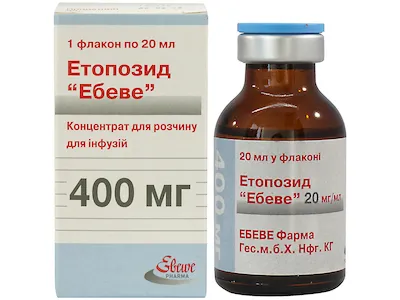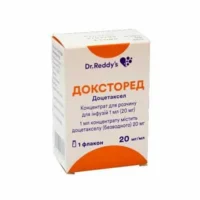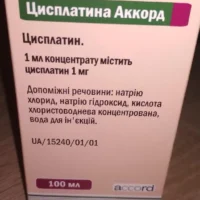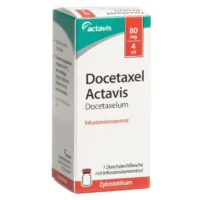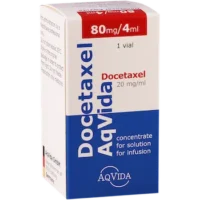Description
Etopozid (etoposide) Concentrate for Infusions 20 mg/ml – 20 ml (400 mg) Vial №1
Ingredients:
Etopozid (etoposide) concentrate for infusions contains 20 mg/ml of etoposide as the active ingredient.
Dosage:
The recommended dosage of Etopozid (etoposide) concentrate for infusions is determined by the patient’s body surface area, medical condition, and response to treatment. It is administered intravenously by a healthcare professional.
Indications:
Etopozid (etoposide) concentrate for infusions is indicated for the treatment of various types of cancers, including lung cancer, testicular cancer, and lymphomas.
Contraindications:
Do not use Etopozid (etoposide) concentrate for infusions if you are allergic to etoposide or any other ingredients in the product. It is important to discuss any existing medical conditions with your healthcare provider before starting treatment.
Directions:
Follow the instructions provided by your healthcare provider for the proper administration of Etopozid (etoposide) concentrate for infusions. It is essential to receive this medication in a healthcare setting under the supervision of a trained professional.
Scientific Evidence:
Etopozid (etoposide) has been extensively studied in clinical trials for its efficacy in treating various types of cancers. Research has shown that etoposide works by inhibiting topoisomerase II enzyme, leading to DNA damage in cancer cells, ultimately causing cell death.
Additional Information:
In comparative studies, Etopozid (etoposide) concentrate for infusions has shown comparable effectiveness to other chemotherapy agents in the treatment of certain cancers. It is important to discuss the potential benefits and risks of treatment with your healthcare provider.
Etopozid (etoposide) concentrate for infusions 20 mg/ml – 20 ml (400 mg) Vial №1 is a vital medication in the treatment of various cancers. Its pharmacological action involves interfering with the DNA synthesis of cancer cells, leading to their destruction. Clinical trials have demonstrated the efficacy of etoposide in improving survival rates and quality of life in cancer patients.
Research published in the Journal of Clinical Oncology has highlighted the role of etoposide in combination therapies for small cell lung cancer, showcasing its importance in modern oncology practices. The drug’s mechanism of action and proven clinical benefits make it a valuable asset in the fight against cancer.

